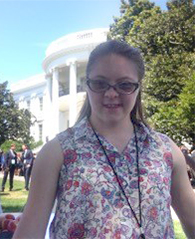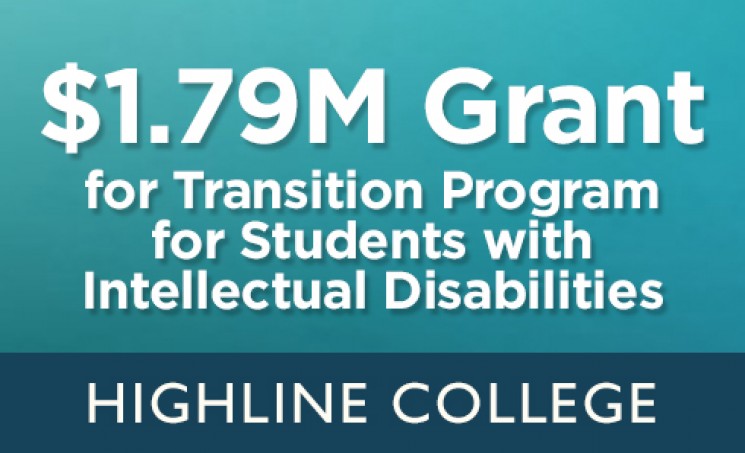New Federal Grant Helps Expand Educational Opportunities
She was a special guest with her mother at the “Beating the Odds” summit at the White House in July. She gave the keynote address with her parents at the World Down Syndrome Day conference at the United Nations in New York City in March. She entertained countless people as a three-year varsity cheerleader during her high school years in Seattle.
Most of us won’t do any of those in our lifetime, but 19-year-old Devon Adelman accomplished them all before beginning her first year at Highline College. And she did it all and more as a person with Down syndrome.
According to Adelman, going to college is yet another way she can prove what differently abled people are capable of, if given the chance.
“My greatest obstacle was other peoples’ doubts and I overcame it,” she said.

With the White House in the background, Devon Adelman enjoys sunny skies in the nation’s capital while attending the Reach Higher “Beating the Odds” summit. (Photo Credit: Susan Adelman)
Adelman was drawn to Highline for its marine biology program. With a passion for marine life, she has volunteered as a docent at the Seattle Aquarium, educating visitors about the ocean’s inhabitants.
Another benefit of attending Highline is its strong ACHIEVE program, which is a comprehensive postsecondary transition program for students with intellectual disabilities.
The college recently received a boost with $1.79 million in funding to build capacity and enhance its ACHIEVE program, thanks to a five-year federal award through a competitive grant process from the U.S. Department of Education. Highline was one of only 25 higher education institutions nationwide to receive the grant and one of three community colleges.
The ACHIEVE program’s goal is to create an inclusive, postsecondary education experience for its students and to provide career preparation and internships based on a student’s interests and skills.
“This is an amazing opportunity for our students and our community. Studies have shown that nationally only about 34 percent of people with intellectual disabilities are employed. Research also shows that paid work experiences while in school lead to better post-school employment outcomes for all students,” said Jennifer Sandler, who directs Highline’s ACHIEVE program. “This new funding will help us increase access to paid employment experiences for students with intellectual disabilities while in school, expanding the kind and quality of career opportunities available to them in the job market.”

Devon Adelman and her mother have front-row seats at First Lady Michelle Obama’s Reach Higher “Beating the Odds” summit. (Devon is second from the left with her back to the camera, looking in toward her mother.) Held in July 2015, 140 college-bound students visited the White House for the summit, which included a panel that shared advice, tips and inspiration. (Photo Credit: The White House)
For students like Adelman, the additional funding will provide paid internship opportunities on and off campus.
After she settles into the routine of college life, Adelman will most likely pursue an internship at Highline’s Marine Science and Technology Center, known as the MaST Center, which has an aquarium of its own, just on a much smaller scale than the Seattle Aquarium.
Adelman spoke about her experiences as part of Highline’s celebration of Disability Awareness Month during October. Her presentation, “Beating the Odds: My Journey to Higher Education,” took place Wednesday, October 21, 2015.
About Highline College’s ACHIEVE Program
In 2010, Highline College became one of the 27 model demonstration programs as part of the Transition Postsecondary Education Program for Students with Intellectual Disabilities (TPSID). With TPSID funding, ACHIEVE has created a sustainable, inclusive, postsecondary comprehensive transition certificate program for individuals with ID. ACHIEVE provides opportunities for individuals with ID to continue their education post high school by earning a meaningful credential, develop and enhance academic and employment readiness skills in an inclusive community college setting, plan and prepare for a career based on interests and skills, gain job skills in real community based businesses, and make lasting friendships through participation and membership in campus clubs and activities.
Having paid internships is a critical development in providing equitable experiences for students with ID in postsecondary education. Access to these opportunities will increase their competiveness and success in the employment market once they leave postsecondary education.


